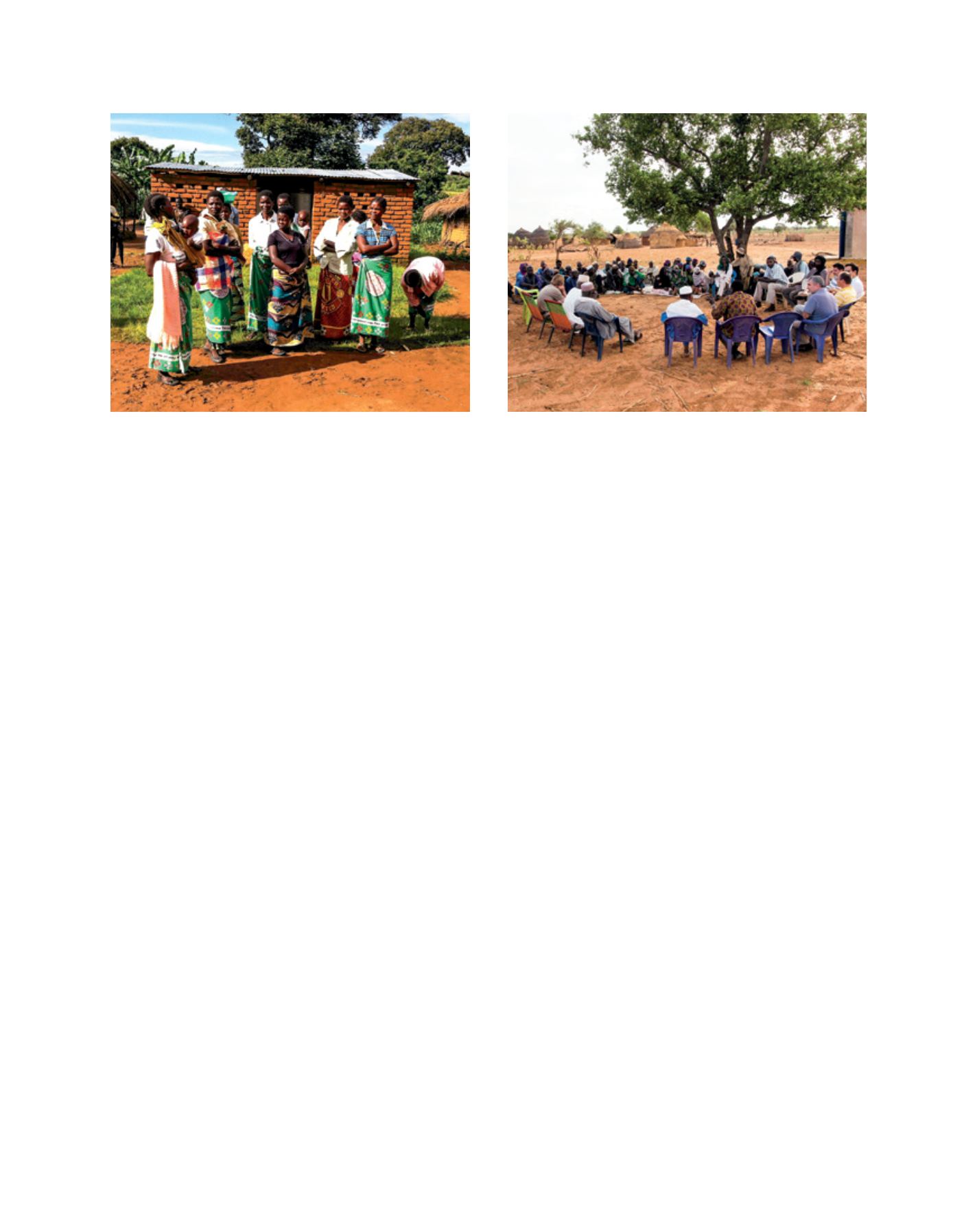

[
] 201
in regions that are easy to access and close to urban markets.
Through collaboration among herders, sustainable pasture use
plans were established that were recognized by local govern-
ments. Furthermore, these groups were better equipped to
access veterinary services and able to establish common works
such as water points or fenced reserve pastures.
Advocating for producers’ interests
The third important role of farmers’ organizations is to voice
family farmers’ concerns and influence policy debates. In
most developing countries, farmers and the rural popula-
tion in general are underrepresented in national and regional
policy debates. This leads to the neglect or farmers’ needs in
policy decisions and often in a higher consideration of urban
versus rural populations’ interests. For example, the reliance
on cheap food imports compared to supporting domestic food
production led on the one hand to affordable food for the
poor, but on the other hand food producers in these countries
have suffered from low incomes. In fact, 70 per cent of the
poor today live in rural areas and depend to a large extent on
agriculture and herding.
In this context, organizations that defend the interests of the
poor rural population have a key role to play when it comes to
the definition of national priority investment areas. An impor-
tant success of farmers’ and pastoralists’ organizations can be
seen in West Africa. The Common Agricultural Policy of the
Economic Community of Western African States (ECOWAP)
recognizes the important role of family farms for the national
economies and food security of the countries in the region.
This has only become possible as particularly the Network of
Farmers’ and Agricultural Producers’ Organizations of West
Africa (ROPPA – Réseau des Organisations Paysannes et de
producteurs de l’Afrique de l’Ouest), but also other regional
producers’ organizations, were able to voice the concerns of
family farms in the related negotiations. With Swiss and other
international support, ROPPA as well as the Association for
the Promotion of Livestock in the Sahel and Savannah and
Réseau Billital Maroobé have succeeded in being recognized
by policymakers at regional level as key actors in respect to
policy decisions in agriculture and food security.
Ensuring benefit to members
To enable farmers’ organizations to fulfil one or more of the
above described roles, they need to be built on a solid funda-
ment of a clear strategic orientation, good internal governance
and member participation. In too many cases more powerful
farmers were able to dominate an organization and to use
it mainly for their personal benefit. This destroys the trust
among the producers in a region, and without trust no such
organization is able to function.
Countries need to invest into the creation of an enabling
environment for farmers’ organizations, and in a regula-
tory framework that allows for checks and balances within
these organizations and for transparency on their conduct
for members. Switzerland supports farmers’ organizations by
investing in building the capacities not only for delivering
services to members and for lobbying, but also for internal
governance. The biggest challenge, particularly for regional
farmers’ networks, is to manage the information flow within
the network or organization. Only if local farmers’ organiza-
tions are linked to national networks that are than organized
at the regional level can credible and strong statements be
made that eventually influence regional policies. In the
opposite direction farmers’ organizations can only provide
needs-oriented services if they have a mechanism that allows
members to influence the orientation of the organization.
In the example of the three regional farmers’ and pasto-
ralists’ networks in West Africa, the big task for these
organizations in the near future will be to contribute to the
implementation of the ECOWAP and to make sure that insti-
tutions at all levels follow the policy framework that has been
decided. One important step in this direction is that now, the
three mentioned networks not only depend on donor funds
but have also been able to lobby for support directly from the
Economic Community of Western African States.
Family farms hold the key for providing healthy and balanced diets across the
world and for providing jobs and income opportunities, particularly in rural areas
In order to fulfil their potential, farmers’ organizations need to be built on clear
strategic orientation, good internal governance and member participation
Image: Markus Buerli, SDC
Image: Karl Schuler, SDC
D
eep
R
oots
















